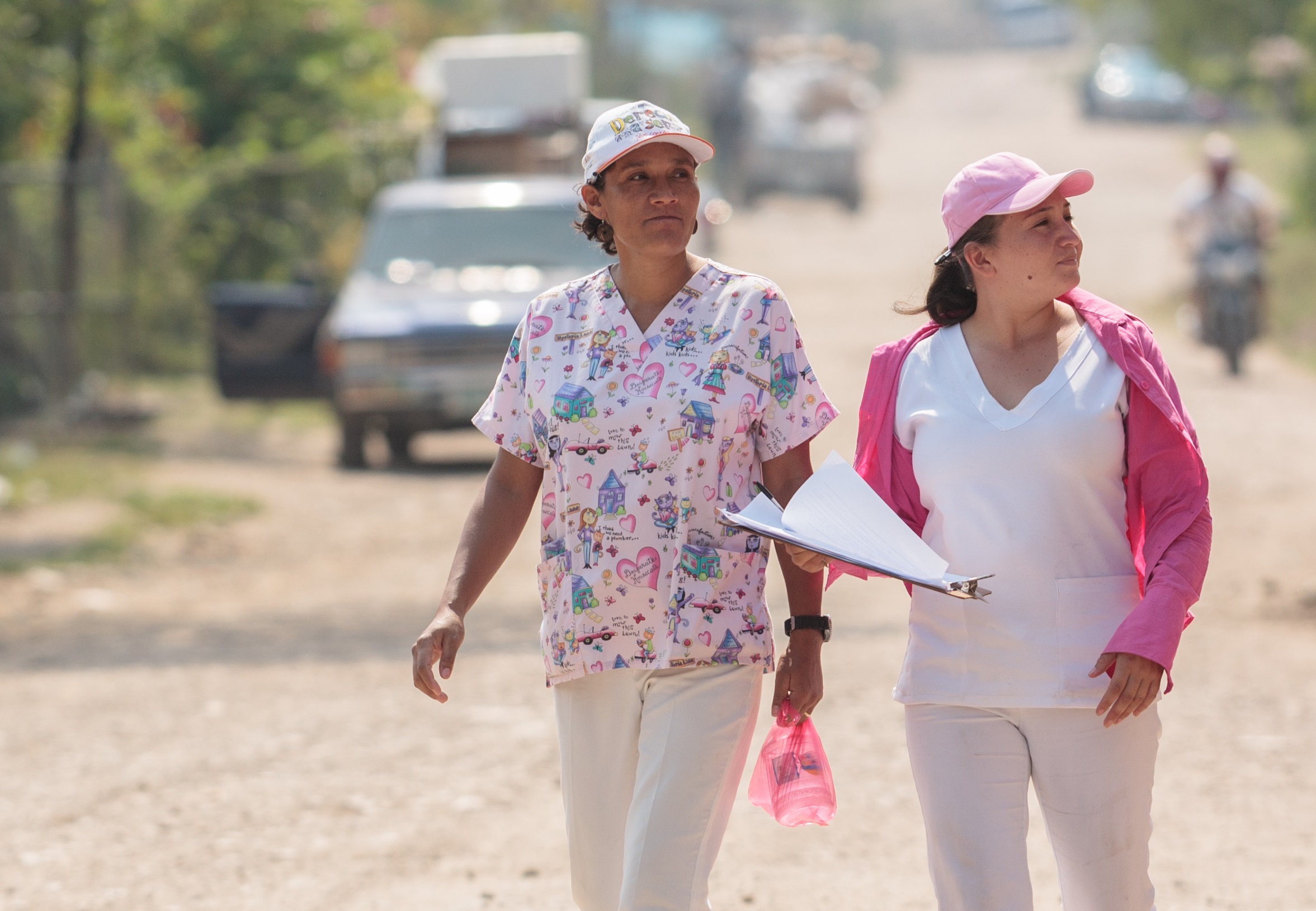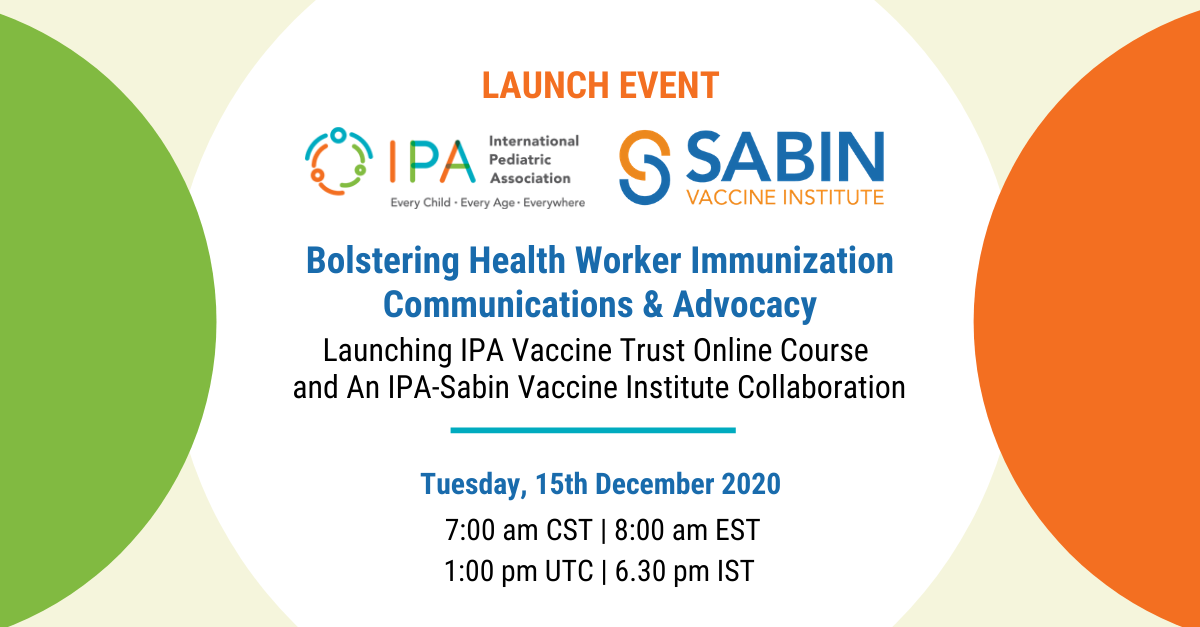Delivering Trust in Vaccines on Immunization’s Front Lines
By Naveen Thacker, Vince Blaser, Amruta Vadnerkar and Shraddha Uttekar

Encouraging news about COVID-19 vaccine development is coming fast and frequent this past month. Discussions abound about whether vaccine uptake, combined with other prevention measures, will be high enough to end this horrific pandemic in communities around the world.
That question will be answered in large part by how well we prepare pediatricians, nurses and other frontline health workers who deliver vaccines and immunization information. Each must have conversations with their patients, communities and networks – in the clinic or virtually.
This is why the International Pediatric Association and its 169 National Pediatric Societies from 149 countries have created the IPA Vaccine Trust Project. The Project is a self-paced, online education platform for health workers to learn about communications and advocacy on delivering vaccines and immunization information.
IPA has partnered with the Sabin Vaccine Institute’s Immunization Advocates program to pilot this platform in low- and middle-income countries in Eastern Europe and Latin America transitioning off assistance from Gavi, the Vaccine Alliance.

Frontline health workers’ delivery of vaccines has helped decrease childhood death rates by more than half in the last 30 years. However, routine childhood immunization rates are declining around the world due in large part to declining trust in information about vaccines.
Frontline health workers are trusted gatekeepers of health information for their communities. The Vaccine Trust Project seeks to bolster their ability to communicate directly with patients and externally with media or on online social media forums. The Project will also enhance their skillsets to advocate for immunization locally, nationally and globally.
Sustained community access to trusted information on vaccines is especially critical in countries which have transitioned from Gavi assistance. These include Armenia, Bolivia, Honduras, Georgia, Guyana, Moldova and Azerbaijan – where our partnership will pilot. During the next several months, IPA and its affiliate national pediatric societies will work with other health workforce associations, governments and other stakeholders in these countries to deliver training through platform modules in English, Russian and Spanish.
The IPA-Sabin partnership will pair this online training with topical seminars and advocacy activities. We will connect frontline health workforce advocates to communications opportunities, including potentially with local journalists reporting on vaccines and immunizations.
As we continue to learn from the nurses, pediatricians, physicians assistants and other frontline health workers who participate in this project, the partnership will adapt materials to meet their needs. We will also advocate for the information these health workers need to build and maintain trust in the communities they serve, allowing them to deliver trusted information on routine immunization and to communicate the rapidly evolving body of knowledge about COVID-19 vaccination.
As we have seen in other global health emergencies like the recent Ebola epidemic in a conflict region of the Democratic Republic of Congo, immunization can play a central role in ending epidemics. However, their effectiveness can only be maximized with sustained effort to build community trust. To end the COVID-19 pandemic and ensure the lifesaving power of all vaccines, we must urgently prioritize equipping frontline health workers with the skills they need to confidently deliver trusted and up-to-date immunization information to their communities.
Authors








